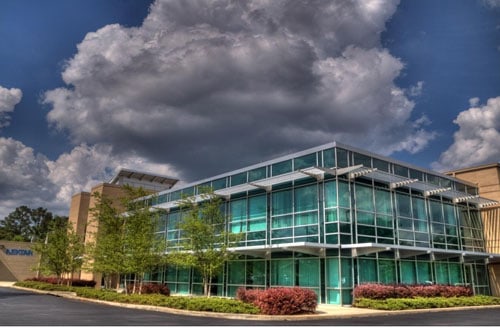
Nektar Therapeutics’ hopes of filing for approval of its breast cancer candidate NKTR-102 this year have been dashed after it failed to meet its targets in a phase III trial.
NKTR-102 (etirinotecan pegol) is a derivative of the topoisomerase I inhibitor irinotecan – a widely used chemotherapy agent – and is designed to extend exposure to the active agent whilst also reducing its toxicity.
The pharmacokinetic profile of the drug is designed to provide sustained levels throughout a three-week treatment cycle, and reduce the peak exposures that are associated with toxicities of other chemotherapies.
The results of the 852-patient BEACON trial showed however that NKTR-102 did not achieve a significant improvement in survival when compared to active control, which consisted of a single chemotherapy agent of the prescribing physician’s choice, in heavily pre-treated patients with advanced breast cancer.
The drug also failed to improve secondary outcome measures, including objective response rate and progression-free survival (PFS).
The results are a big disappointment because 90% of the patients enrolled in the BEACON study were HER2-negative, a patient group accounting for around three quarters of all breast cancer cases but which still has few treatment options.
Nektar has been granted priority review status for NKTR-102 by the FDA, so had been potentially looking at approval in early 2016 if the BEACON results had been positive.
The development is also particularly disappointing for Nektar as NKTR-102 was a wholly owned project. The company makes most of its revenues in the form of milestones and royalties on drugs sold by other companies, and is trying to develop its own brands to accelerate sales and earnings growth.
Despite the setback, Nektar is not giving up on the drug candidate, pointing out that a two-month survival benefit was seen in the trial and some patient subgroups – including patients suffering from brain and liver metastases – seemed to do better with statistically-significant survival gains.
Nektar said it would explore with regulators in the US and EU whether there is still a route to market for NKTR-102. Investors voted with their feet, however, and the company’s share price closed down almost 12% yesterday.
Meanwhile, NKTR-102 is also being studied in phase II trials as a treatment for the brain cancer glioblastoma in patients refractory to treatment with Roche’s Avastin (bevacizumab), as well as ovarian, colorectal and lung cancer.




